5 Myths About Vegan Protein—Busted!
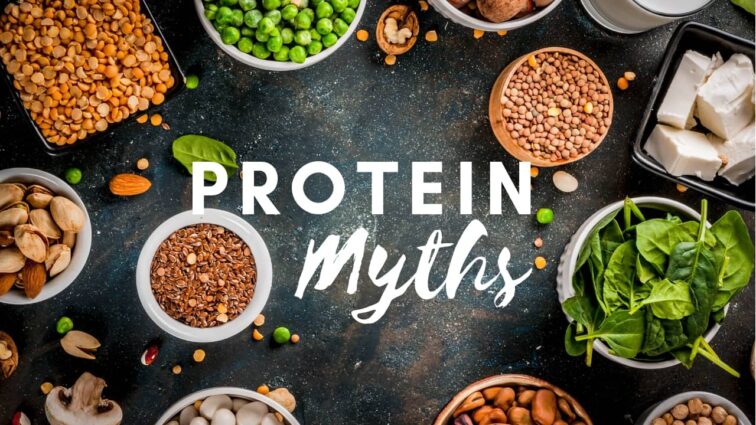
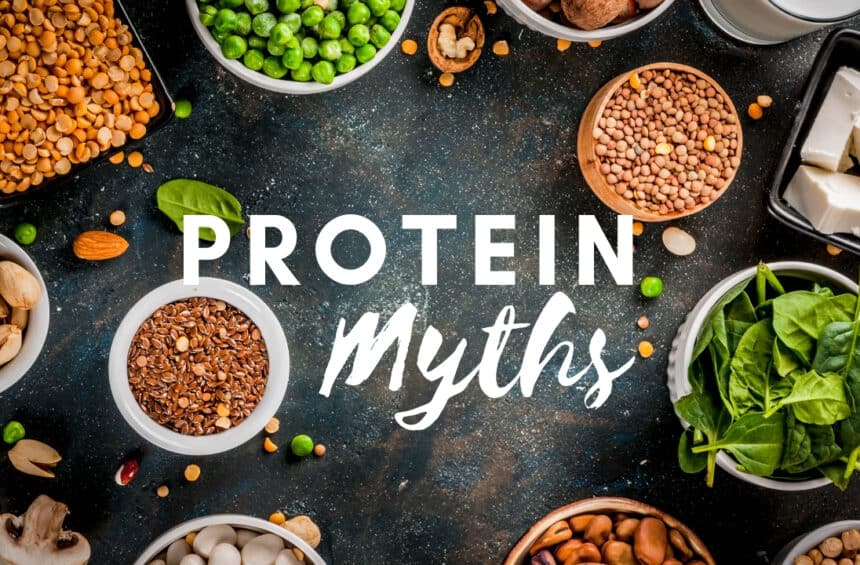
If you’re considering going vegan, there’s one thing you should know. Everyone you know—and even a bunch of people you don’t know—will become extremely concerned about your protein intake.
Joking aside, there are many myths surrounding protein intake on a vegan diet that deter many would-be herbivores from adopting a plant-based lifestyle.
Sure, most people will agree that a vegan diet can be a good fit for people of all ages and lifestyles.
But when you’re assaulted with protein questions from your family, your teachers, your friends, and maybe even your doctor, it can break even the most strong-willed among us.
So we thought that now would be a good time to pop some of the most popular vegan protein myths.
Table of Contents
Myth #1: Vegans Don’t Get Enough Protein
There is a medical condition known as kwashiorkor, which is an extreme protein deficiency. Unfortunately, kwashiorkor affects over one billion people in the world. But very few of those people lived in developed areas.
Instead, kwashiorkor tends to affect people who are under extreme nutritional duress, such as those who are starving or who don’t have the means to give themselves regular balanced meals.
While it is entirely possible to have inadequate protein intake as a vegan, it’s rather hard to do if you’re eating a balanced diet. To develop an extreme protein deficiency as a vegan living in a developed country and with a reasonable amount of access to healthy and affordable foods, you would have to follow a highly-unbalanced diet.
Given that protein is abundant in the plant kingdom, most vegans should have little issue with consuming enough protein. According to vegan registered dietitian nutritionist Ginny Messina, the rules for getting enough protein as a vegan are threefold.
3 Basic Rules For Getting Enough Protein:
- Eat enough calories
- Eat a variety of foods, including at least 3 servings of legumes per day (includes soy products, beans and lentils)
- Add another 2 servings of legumes daily if you’re cutting calories or over the age of 60
Protein Myth #2: Plants Don’t Contain Much Protein
Friends, plants are packed with protein. Like, it’s insane how much protein you’ll find in the produce section of your supermarket.
For instance, cooked lentils contain 18 grams of protein per cup and cooked black beans provide 16 grams of protein per cup. Soy foods pack a punch of protein, too. Tempeh delivers a whopping 32 grams of protein per cup and tofu contains 20 grams of protein per cup.
While not all edible plants contain levels of protein as high as those of lentils and beans, even vegetables and grains contain some protein.
If you’re still a little worried about your protein intake, consider supplementing with plant-based protein powder and working with a vegan registered dietitian nutritionist!
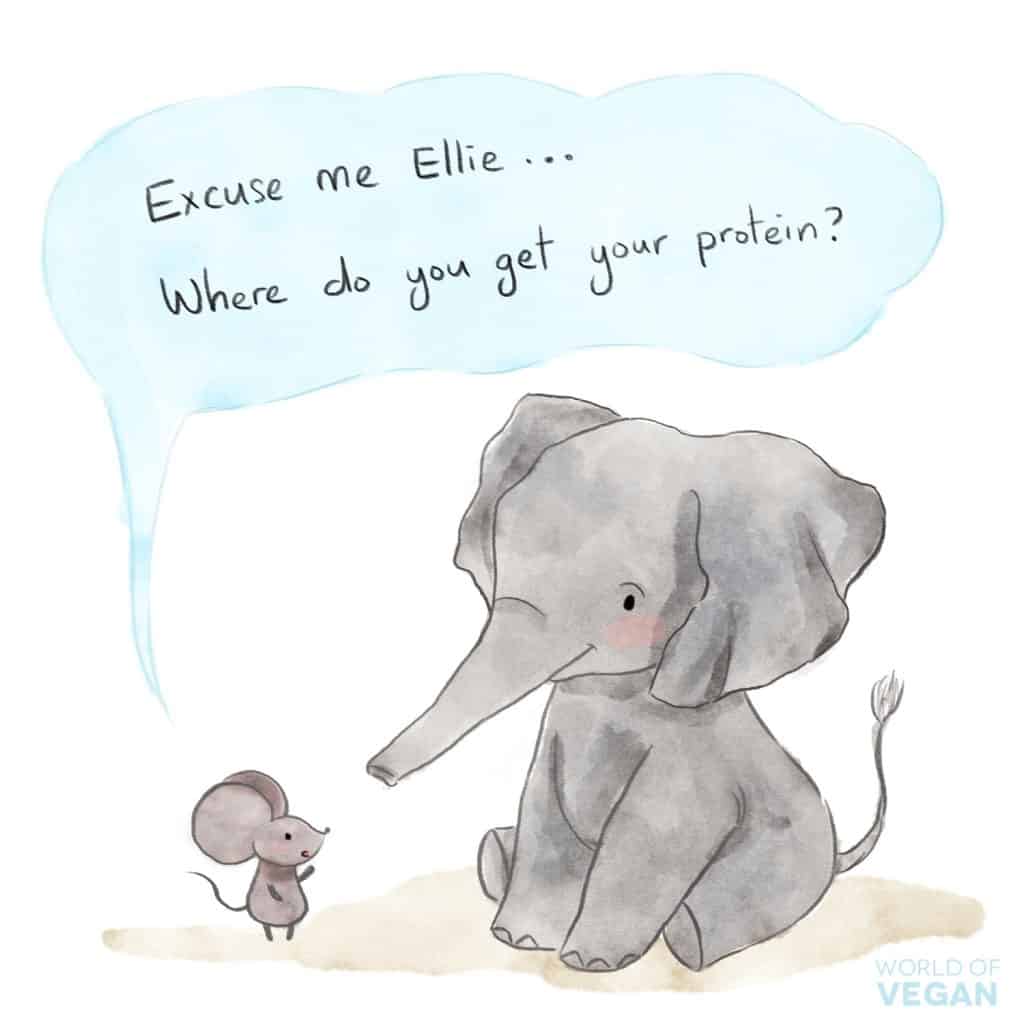
Myth #3: Vegan Babies & Children Don’t Get Enough Protein
Just like with adults, if anyone, vegan or not, is not eating a balanced diet, they are at risk of nutritional deficiencies. But breast milk and soy-based infant formula can provide all the protein vegan infants need.
As they grow, little ones can transition to soft plant-based protein foods. Think: soft tofu, mashed beans, and mashed lentils. Talk with your child’s health care provider about their diet and transitioning to solid foods.
For children ages 2 to 3 years, just 2 to 4 ounces of protein foods is plenty. Kids this age enjoy whole beans, cubed tofu, and nut butters. School-age kids and vegan teens can get enough protein from beans, tofu, whole grains, nuts and nut butters, and vegan meats.
As long as you feed your child a reasonably well-balanced diet, it’s rare that a vegan child would be protein-deficient based on their dietary intake. If you have any concerns about your child’s intake, consult with their health care provider and work with a registered dietitian nutritionist.
Protein Myth #4: Athletes Won’t Get Enough Protein On A Vegan Diet
We don’t want to sound like a broken record, but we just have to say it again: Most people won’t be protein-deprived if they follow a sensible balanced vegan diet, whether they are children or athletes or your average Joe.
But when it comes to athletes, would-be vegans become a little wary. After all, research suggests that athletes overall need to consume more protein than non-athletes. Of course, the specific level of protein varies according to the type of sport the athlete plays and their training goals.
Believe it or not, here’s where the power of plants is really starting to shine!
There is an increasing number of vegan athletes competing at the highest level proving this misconception wrong. Just take a look at vegan ultramarathoner Rich Roll. And Matt Frazier (No Meat Athlete). And Olympic figure skater Meagan Duhamel. And former vegan NFL player David Carter (aka The 300 Pound Vegan). And vegan tennis superstars Venus and Serena Williams.
We could go on and on…
While plant-based proteins may not be as digestible as animal-based ones, vegan athletes can counteract this by simply consuming more protein or taking plant-based protein supplements.
In regards to concerns about amino acid and plant-based protein sources, it’s possible to meet one’s required essential amino acid intake by simply eating a well-balanced diet. Eating a variety of whole grains and legumes daily, along with adequate calories, will help ensure you’re getting enough of all essential amino acids.
In essence, with some basic planning and attention to one’s dietary needs, it’s absolutely possible for vegan athletes to thrive.
Myth # 5: Plant-Sourced Protein Isn’t As Good As Animal-Sourced Protein
It’s true that many plant-based sources of protein are slightly less digestible than their animal-based counterparts. And it’s true that not all plant-based proteins contain enough of your essential amino acids (check out quinoa if you’re looking for a healthy plant-based complete protein).
But if you’re eating a varied diet with enough calories, protein isn’t something you need to worry about. And, research shows getting your protein from plant-based sources is better for your overall health. This may be due to the low-fat content, fiber content and vitamin, mineral, and phytonutrient content.
So rather than just thinking about food in term of its protein, think about the whole package. Plant foods are loaded with nutrition that supports our health and wellness. Plus, they’re cholesterol free!
While it’s not difficult to meet your protein requirements as a vegan, it does take a little planning and mindfulness. Especially if you’re a vegan athlete, raising a vegan family, or have a pre-existing health condition. But it’s worth it. And it may even save your life.
Now that we’ve popped some common vegan protein myths, take a look at these other common vegan myths, debunked!
Further Reading
- Top 15 Vegan Myths—Debunked
- Unique Vegan Protein Sources
- Vegan Protein Powder
- Guide to Vegan Registered Dietitians
- Vegan Protein Bar Guide
This vegan protein myths article was reviewed by Taylor Wolfram, MS, RDN, LDN. Taylor is a vegan registered dietitian nutritionist who helps vegans and non-vegans alike embrace the benefits of colorful, plant-based nutrition.






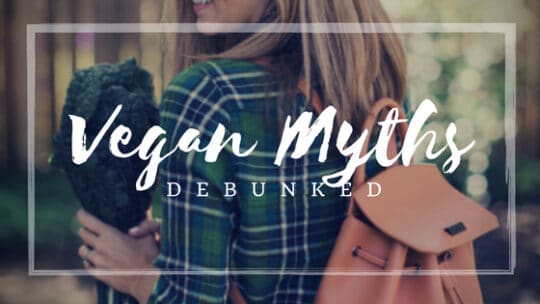
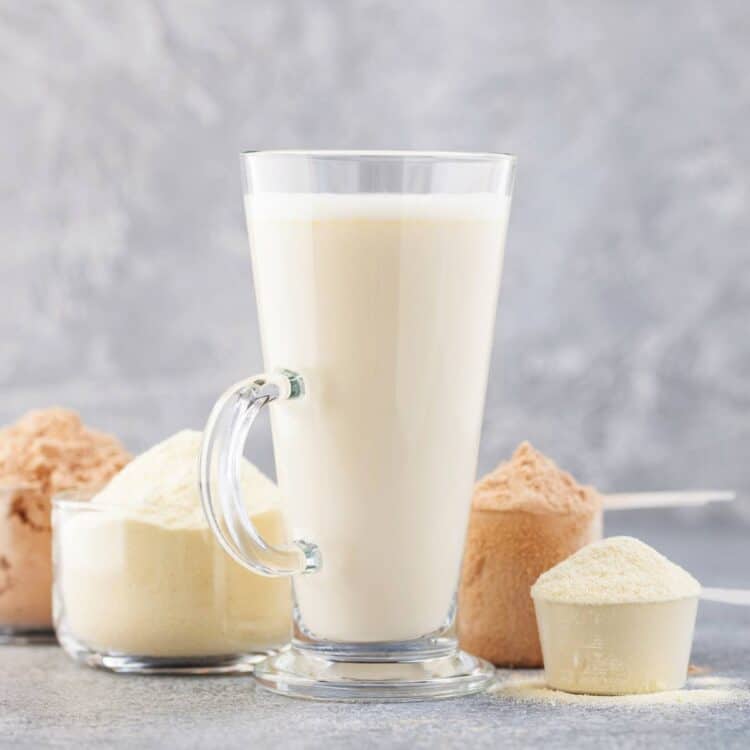


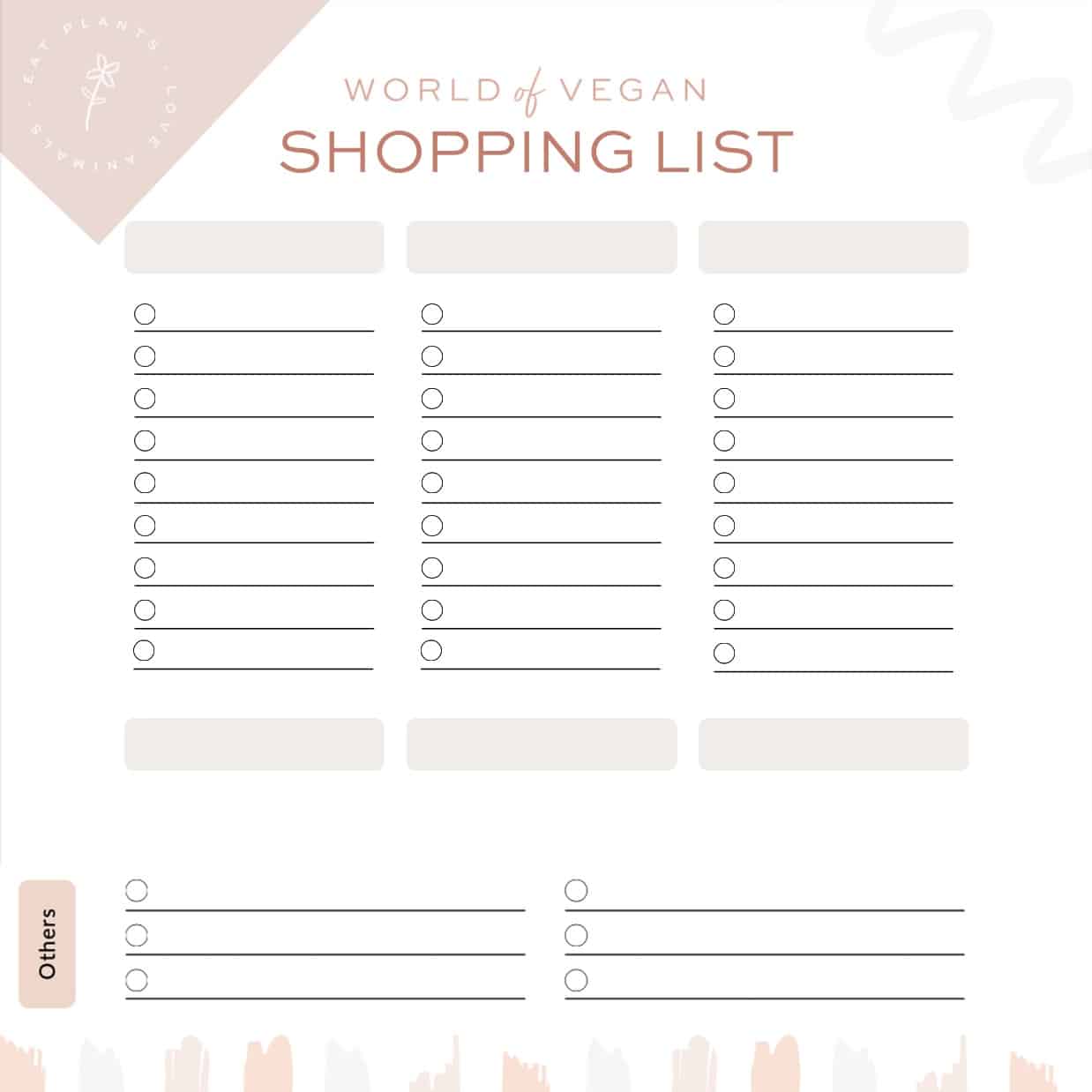
Leave a Comment